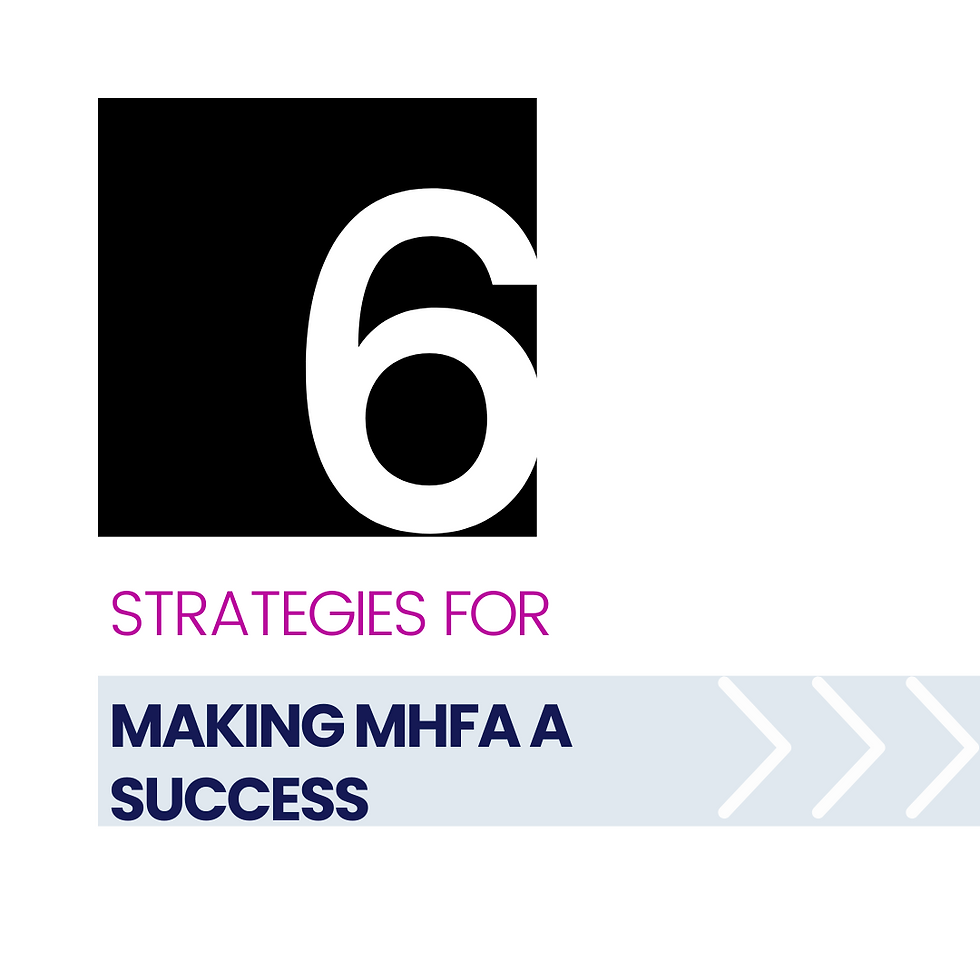10 Workplace Stress Busters That Prevent Burnout and Don't Break the Bank.
- Joanna Buckland

- Apr 5, 2023
- 4 min read
Updated: Jul 6, 2025
As a mental health advisor and trainer, I've had the privilege of collaborating with organisations and their dedicated wellbeing teams. Over time, I've witnessed the creative and innovative ways these workplaces address the growing mental health crisis linked to chronic stress and burnout. It's undeniable that environmental factors, often beyond our control, have escalated the pressure on individuals. Stress levels are soaring, and burnout has become a prevalent concern. The surge in employers looking for ways to boost employee well-being and mental health is not coincidental.
Today's organisations face a unique challenge: competing in demanding environments, such as post-COVID recovery and financial crises, which can significantly impact staff health. Well-being and stress reduction strategies have taken centre stage, even though employers and HR professionals may work with constrained budgets due to resource allocation elsewhere. But a small investment in time can have a huge return on investment.
The encouraging news is that several low-cost or no-cost strategies are available for organisations to implement, and they are both simple and highly effective. Trust me, I've spent time with many well-being teams in organisations with or working towards positive mental health work cultures, and there is a trend of lower staff turnover and greater commitment to the organisation. Well-being isn't a "nice-to-have"; it's central to any thriving organisation.

Here's a practical guide to implementing 10 strategies:
1) Encourage Breaks
Staff who routinely skip breaks or work through lunch are at a higher risk of chronic stress and burnout. Over time, these conditions can develop into developing mental health difficulties such as anxiety and depression. Promoting short, regular breaks to reduce stress and enhance focus.
2) Support Teams to Disconnect at the End of the Day
Emphasise the importance of disconnecting completely after working hours. Encourage employees to log off from email and work-related communication platforms. This helps our systems to rebalance stress chemicals and make time for the things that help us relax.
3) Create a Positive Work Culture through Leadership and Influence:
Humans are naturally inclined to adhere to group norms. Demonstrate a commitment to wellbeing through both words and actions, such as taking breaks, prioritising self-care, and setting reasonable work boundaries. This sets the foundation for a workplace culture that supports wellbeing.
4) Flexibility in Work Hours
Help employees start and end their days positively by reducing stress associated with punctuality. Allow a 10-15 minute "grace period" at the beginning and end of the workday to accommodate unforeseen delays, childcare responsibilities and other out-of-work commitments.
5) Social Activities and Connection
Create a sense of belonging and camaraderie among your team by initiating social groups or activities. This promotes the release of bonding chemicals that protect against stress.
Be cautious about imposing mandatory fun, as it can have the opposite effect!
6) Recognise and Celebrate Achievements
Regularly acknowledge and celebrate small victories and achievements within the team. Utilise photos, intranet announcements, and verbal recognition to boost morale and motivation, alleviating the constant pressure employees may feel.
7) Encourage Physical Activity
Promote physical wellbeing by encouraging short walks, stretches, or brief exercises during breaks. Regular movement is scientifically proven to help the body reduce built up stress chemicals.
8) Promote Stress-Reduction Techniques
Create mini workshops or share useful resources on simple stress-reduction techniques, such as deep breathing exercises or mindfulness practices, for employees to incorporate into their daily routines.
9) Share Mental Health Resources
Promote access to mental health resources and information, such as self-help articles, apps, or hotlines, which employees can utilize when needed.
10) Support Employee Initiatives
Empower employees to take the lead in suggesting and implementing initiatives that enhance the work culture and wellbeing. We feel more engaged at work when connected to a purpose. Driving positive change can build better relationships between employers and teams, the brand, and each other.
Boosting well-being and addressing stress in the workplace don't have to be expensive. I've been in rooms where staff enthusiastically discuss the impact of small changes. Organisations can start cultivating workplace cultures that enhance well-being and mitigate stress, burnout, and other mental health challenges, such as anxiety and depression, at relatively low cost, which can help your staff feel more valued and engaged. These minor adjustments can significantly improve the mental health and overall satisfaction of your team.
How we can help
If you are affected by the topics explored in this article, please reach out.
Our Training Programs
Our training team has a wide range of skills across sectors, all psychologically informed. We currently offer training courses, including Adult Mental Health First Aid, Youth Mental Health First Aid, and Tailored topics in stress and burnout. We can also provide training in any topics we support in our counselling practice. See Topics below.
Strategic Therapy
From stress, pressure, and burnout to relationship issues, breakups, anxiety, and depression, our comprehensive counselling service covers a wide range of topics essential for promoting mental health and overall wellbeing.
Topics we support our clients with include self-esteem, confidence, anger, grief and loss, sleep issues, anxiety, depression, OCD, workplace conflicts, imposter syndrome, perfectionism, social isolation, communication skills, boundaries, coping with change, resilience-building, mindfulness, body image, career transitions, financial stress, parenting challenges, caregiver stress, trauma and PTSD, balancing work and personal life, loneliness and isolation, emotion and nervous system regulation, assertiveness training, procrastination and motivation, positive psychology interventions, stress management techniques, relaxation exercises, conflict resolution skills, building healthy relationships, enhancing emotional a, and much awareness and much more.
Join us to explore these essentials to cultivate a healthier, more balanced life.




Comments